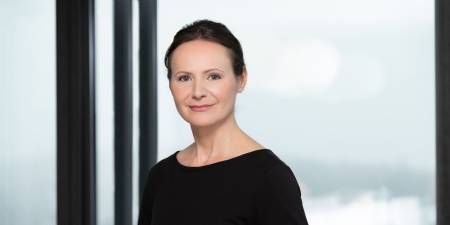You’re the Chief Risk Officer, and you’re head of the Governance, Risk, Compliance and Legal departments. How would you sum up your role in simple terms?
In my role as Chief Risk Officer, my department and I are responsible for risk management. We ensure that the company is aware of the risks it faces and knows how to deal with them. In the Governance department, we also address overarching management issues, such as the company’s organizational structure. In the Compliance department, we primarily focus on the prevention of money laundering, and in Legal, we provide the in-house legal affairs service.


